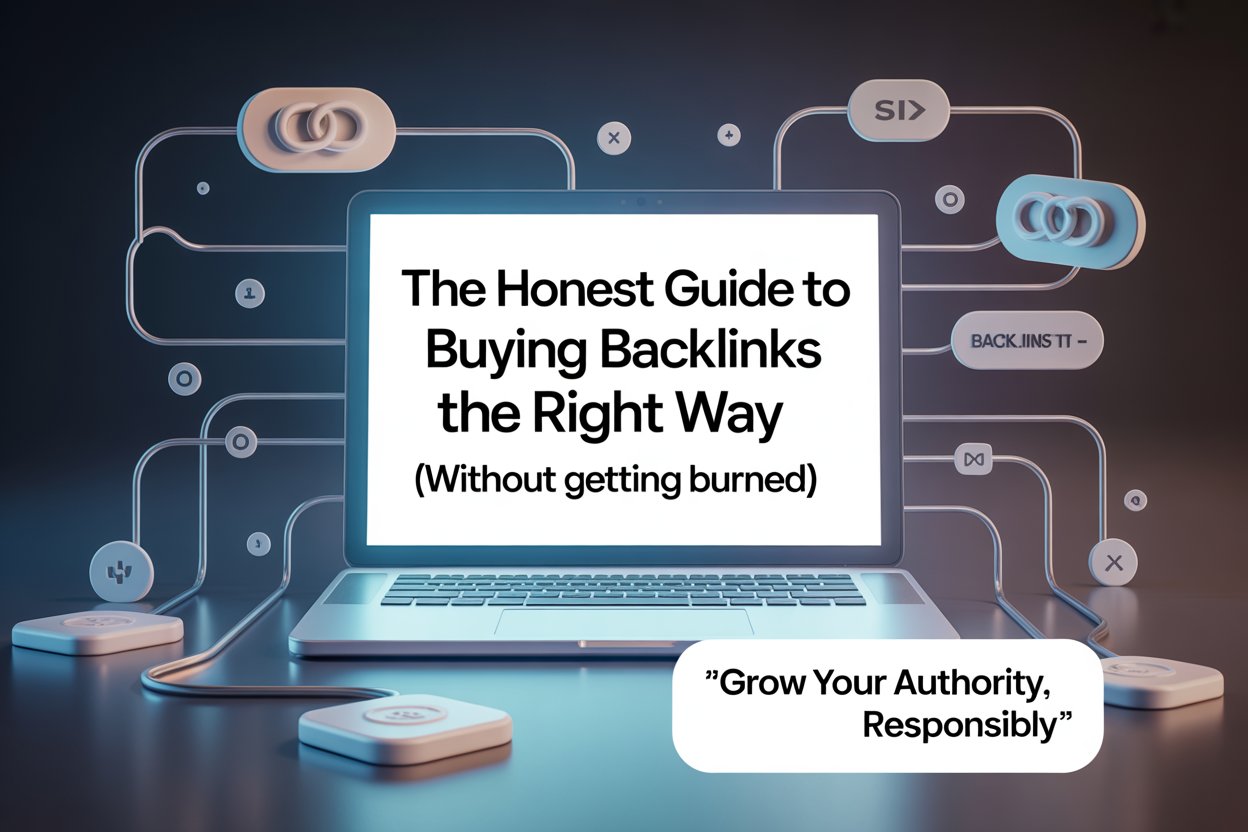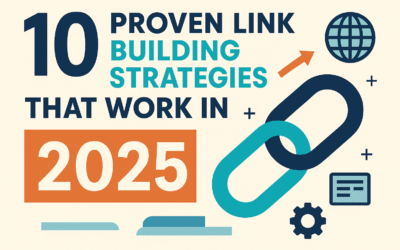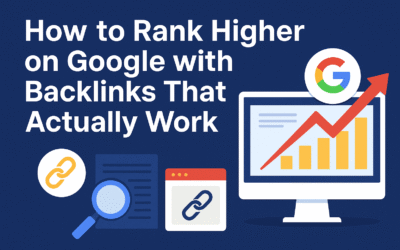Let’s be real: backlinks matter.
They’re one of the strongest signals search engines look at when deciding where to rank your website. And naturally, if you’re trying to climb the search ladder, you’ve probably asked yourself the big question:
“Should I buy backlinks?”
The short answer: maybe but only if you do it the right way.
This guide will walk you through how to buy backlinks safely, what to avoid, and how to make sure your investment actually boosts your SEO instead of hurting it.
=> First, Why Do Backlinks Even Matter?
Think of backlinks as “votes of confidence.” When a website links to yours, it’s telling Google, “Hey, this content is worth checking out.”
Here’s what quality backlinks can do for your site:
- Improve rankings for your target keywords
- Drive referral traffic from other websites
- Boost domain authority, making all your pages perform better
- Get you noticed in your industry
But here’s the catch: not all backlinks are created equal.
🚨 The Risk of Buying the Wrong Backlinks
Let’s get this out of the way buying backlinks can be risky, especially if you’re using shady vendors or spammy methods.
Some of the worst-case scenarios include:
- Google penalties (manual or algorithmic)
- Wasted money on links that don’t help rankings
- Damaged brand credibility
So if you’re thinking of dropping cash on links, you need to know how to spot the red flags and how to do it smart.
🧠 What Makes a Backlink “High-Quality”?
Before we talk about buying, it’s important to understand what a good backlink looks like.
✔️ Relevant
The linking site should be in the same (or closely related) niche as yours.
A fashion blog linking to your roofing company? That’s a hard pass.
✔️ Authoritative
The site should have strong domain metrics (like DA/DR), a real audience, and content that ranks well on Google.
✔️ Contextual
Backlinks should be naturally placed within meaningful, relevant content not shoved into a sidebar or footer.
✔️ Traffic-Driving
Links from sites with real traffic often pass more SEO value and can send referral visitors your way.
💡 When Is It Okay to Buy Backlinks?
Here’s the truth: buying backlinks isn’t against the rules, if it’s done ethically and transparently. In fact, many brands do it especially when working with agencies like us at Link Growth Lab.
Here are situations when buying backlinks makes sense:
- You’ve already nailed your on-page SEO and content
- You want to accelerate link acquisition without waiting months
- You’re targeting high-competition keywords
- You’re working with a reputable agency that uses white-hat practices
👎 What to Avoid When Buying Backlinks
Here’s your red flag checklist:
🚫 Fiverr gigs promising “1,000 backlinks for $10”
🚫 Private blog networks (PBNs) with recycled content
🚫 Irrelevant websites or sites with thin content
🚫 Links in spammy directories or comment sections
🚫 No transparency on where your link will be placed
If the vendor won’t tell you where the link is going before you pay, walk away. No exceptions.
🧩 How to Buy Backlinks the Smart Way
Buying backlinks doesn’t mean buying in bulk. It means investing in quality placements from real sites with real value.
Here’s how to do it right:
1. Partner With a Reputable Link Building Agency
A solid agency (like Link Growth Lab 👋) will:
- Vet all publishers manually
- Focus on relevant, high-authority websites
- Offer transparent reporting
- Avoid black-hat tactics
- Help you choose anchor text and landing pages that actually drive ROI
2. Choose the Right Metrics
Here are some benchmarks you can look for:
| Metric | Ideal Range |
|---|---|
| Domain Authority (DA) | 40+ |
| Domain Rating (DR) | 40+ |
| Organic Traffic | 1,000+ monthly |
| Niche Relevance | Closely aligned |
Pro Tip: Don’t rely solely on DA or DR. Look at organic traffic, indexed pages, and content quality.
3. Ask for Sample Links
Any good agency should be able to show you examples of real links they’ve built. If they hesitate, take that as a red flag.
4. Diversify Your Link Profile
Don’t put all your SEO eggs in one basket.
Mix it up with:
- Guest post links
- Niche edits (contextual links in existing articles)
- HARO links (earned media from journalists)
- Digital PR campaigns
- Resource page links
A diverse link profile looks more natural to search engines and it’s more effective long term.
📊 What Does It Cost to Buy Quality Backlinks?
It depends on the niche and domain authority, but here’s a rough breakdown:
| DA Range | Cost per Link (Typical) |
|---|---|
| 20–30 | $100–$150 |
| 30–50 | $150–$300 |
| 50+ | $300–$600+ |
Note: These are average figures not bottom-of-the-barrel deals. If someone offers you a $50 link from a DA 60 site… it’s probably fake or spammy.
📈 Do Paid Backlinks Actually Work?
Absolutely if done right.
Many clients at Link Growth Lab see significant ranking improvements in 3–6 months when buying editorial, high-authority backlinks strategically. Especially when paired with solid content and technical SEO.
Remember: backlinks are a signal, not a magic bullet. They help amplify the work you’re already doing on your site.
👋 Final Thoughts: Should You Buy Backlinks?
Let’s sum it up:
✅ Yes, it’s okay to buy backlinks but only from trustworthy sources
⚠️ Stay far away from cheap spammy links
📈 Focus on relevant, high-quality placements
💬 Partner with an agency that prioritizes transparency and strategy
If you’re ready to boost your rankings without risking penalties or your brand’s credibility, reach out to us at Link Growth Lab. We’re happy to walk you through it and help you build a backlink strategy that works the right way.



